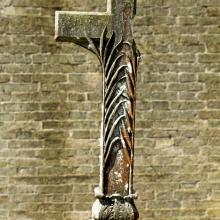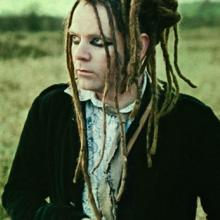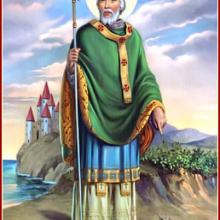Irish
In a major setback for the pope, Collins on Mar. 1 announced that she had resigned from the Pontifical Commission for the Protection of Minors, established by the pontiff in 2013 to counter abuse in the church.
She said the pope’s decision to create the commission was a “sincere move,” but there had been “constant setbacks” from officials within the Vatican.
“There are people in the Vatican who do not want to change, or understand the need to change,” Collins said in a telephone interview from Dublin.

Image via TheVagabond/Shutterstock.com
Now, Donoghue, 47, has written The Wonder, a story based on “fasting girls” — a crop of pre-adolescent Victorians, some of them religiously motivated, who seemed to survive for months or years on no food and little water. Some were revealed as frauds, some gave up their fast, while others wasted away while family, friends, doctors, and clergy watched.
For Catholics, Episcopalians and some Lutherans, March 17 is the Feast Day of St. Patrick. For the rest of us, it’s St. Patrick’s Day — a midweek excuse to party until we’re green in the face. But who was Patrick? Did he really drive the snakes out of Ireland or use the shamrock to explain the Trinity? Why should this fifth-century priest be remembered on this day?
Q: Was St. Patrick a real guy, and would he approve of green beer?
A: Yes, Patrick was a real person, but not much is known of his life. He was born in the late 300s when the Roman Empire extended to England, so he was not “really” Irish — like the vast majority of people who celebrate his day. In his “Confessio,” one of only two surviving documents attributed to him, Patrick wrote that while his father was a Christian deacon, he was not devout. At age 16, Patrick was captured by Irish marauders, carried across the Irish Sea and enslaved. Patrick spent six years alone in the wilderness tending his master’s sheep, praying constantly. “It was among foreigners that it was seen how little I was,” he wrote. He began to have visions and hear voices that told him: “Look, your ship is ready.” So Patrick left his first flock and walked 200 miles to the coast. It’s a pretty safe bet he would have loved a beer, green or otherwise, as he stepped into a boat bound for England.
I love St. Patrick’s Day.
The one day of the year when, for better or worse, Western culture allows me to claim my non-existent inner Irishman.
Kiss me, baby.
Okay. I’m done.
There are many stories and legends about the fascinating life of St. Patrick. One of the most famous legends recounts how this great 5th century saint banished all of the snakes from Ireland. Bad snakes. Bad.
My work at the Raven Foundation during the last few years has taught me to be suspicious of such legends. In fact, we might call them myths. Myths cover up scapegoating of human beings by telling the story in a more innocuous way. So, instead of saying we banish humans, we say we banished snakes.
Interestingly, the last glacial period (some 10,000-100,000 years ago, depending on whom you ask) beat St. Patrick to the snake banishing. But, Christian tradition has given Patrick all the credit. So, if there weren’t snakes around during Patrick’s day, what’s with the legend?

Duke Special. Image via www.dukespecial.com.
I have followed the Irish musician Peter Wilson’s (aka Duke Special) career from the very beginning, giving him one of his first radio sessions as Booley House way back in the day. I have watched the twists and turns of a determined young man seeking a way to fulfil his dreams for his art.
I remember him deciding that the piano was not the way to go and drawing a guitar band around him, renamed Benzine Headset. Then along came Coldplay and Wilson’s instrument was suddenly back in vogue and loads of bands improved because they gave the musically talented member who had been an add on out in the wings a more central position in writing and performance.
Wilson found his original vocation and genius and the piano became the focus. While watching him with the Ulster Orchestra recently, his piano and voice has never sounded more assured, more authoritative.
Oh Pioneer is being promoted as Duke Special’s third “commercial” release. Between it and his second “commercial” release he has produced five projects from theatre songs to a suite of songs on photographers to a short EP on Belfast’s great voice of the fifties Ruby Murray. His Dukeness seems a prolific young man who needs such projects to give his over imaginative mind room to play.


